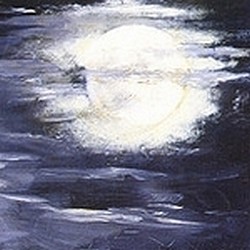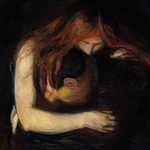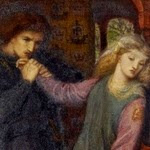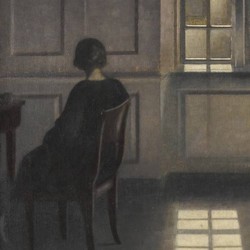- Details
Song of the week: Der Tamboursg'sell (G. Mahler) - T. Quasthoff, C. Abbado (director)
 I’ve been neglecting Mahler for a year, how could this happen? It's like one of those friends that one day, you realize you haven’t talked to for a longtime so you phone right away; when I noticed Mahler’s absence, I rush to choose one of his Lieder and the first volunteer was Der Tamboursg'sell (The drummer boy). I admit that I hesitated because it's a tough song but the drummer insisted...
I’ve been neglecting Mahler for a year, how could this happen? It's like one of those friends that one day, you realize you haven’t talked to for a longtime so you phone right away; when I noticed Mahler’s absence, I rush to choose one of his Lieder and the first volunteer was Der Tamboursg'sell (The drummer boy). I admit that I hesitated because it's a tough song but the drummer insisted...Der Tamboursg'sell is the last Lied that Mahler wrote on a text from Des Knaben Wunderhorn, during the summer of 1901, and it was originally written with orchestral accompaniment. What we hear in it is terrifying: a drummer’s way from his cell to the gallows. [...]
- Details
Songs of the week: Rêvons, c'est l'heure (J. Massenet ) - F. Lott, A. Murray, G. Johnson; La lune blanche (G. Fauré) - C. Maltman, G. Johnson; L'heure exquise (R. Hahn) - S. Graham, R. Vignoles
 Last week we were listening to Chanson Triste by Henri Duparc, a mélodie from the early days of the genre, which began around 1870. However, what was there in France before the Mélodie? Any other song genre? Yes, there was Romance. Let’s place ourselves in the middle of the 18th century. The French Court sung either songs inspired by ancient legends or songs that talked about pastoral or sentimental stories in an ancient poetic style; those songs were called romances. The texts were simple and the music was simple too, so as everybody was able to perform them; however, unlike Classical Lied (born in Germany at the same time) romance wasn’t related to traditional music and, most of all, didn't have any artistic ambition. An example from that period is Plaisir d'amour by Jean Paul Martini, that we listened on this blog a few months ago; although it's not the [...]
Last week we were listening to Chanson Triste by Henri Duparc, a mélodie from the early days of the genre, which began around 1870. However, what was there in France before the Mélodie? Any other song genre? Yes, there was Romance. Let’s place ourselves in the middle of the 18th century. The French Court sung either songs inspired by ancient legends or songs that talked about pastoral or sentimental stories in an ancient poetic style; those songs were called romances. The texts were simple and the music was simple too, so as everybody was able to perform them; however, unlike Classical Lied (born in Germany at the same time) romance wasn’t related to traditional music and, most of all, didn't have any artistic ambition. An example from that period is Plaisir d'amour by Jean Paul Martini, that we listened on this blog a few months ago; although it's not the [...]- Details
Song of the week: Chanson triste (H. Duparc) - J. Kaufmann, H. Deutsch
 When a song becomes an earworm for weeks, I usually end up sharing it in this blog and Chanson triste, by Henri Duparc, has been begging for its turn for a longtime. Reviewing the previous posts with Duparc's songs, I realized that I had barely spoken about this composer. As he's one of the most performed in recitals, you may have noticed that in the usual blocks of four or six songs, some few always come up; that's not because there are the most popular but because he doesn't have anymore. Henri Duparc's catalogue includes exactly seventeen songs, one of which is a duo, so it’s scarcely performed. Pretty amazing, isn't it?
When a song becomes an earworm for weeks, I usually end up sharing it in this blog and Chanson triste, by Henri Duparc, has been begging for its turn for a longtime. Reviewing the previous posts with Duparc's songs, I realized that I had barely spoken about this composer. As he's one of the most performed in recitals, you may have noticed that in the usual blocks of four or six songs, some few always come up; that's not because there are the most popular but because he doesn't have anymore. Henri Duparc's catalogue includes exactly seventeen songs, one of which is a duo, so it’s scarcely performed. Pretty amazing, isn't it?- Details
Song of the week: Philine (H. Wolf) - E. Schwarzkopf, G. Moore
 Once recovered from his wounds, Wilhelm travels to Serlo's home. There, he finds out that his friend isn't very happy with him; if you remember, Wilhelm have sent Melina and his company to him but Serlo thinks they are a bad amateur group. At first, he does not even want to hear about signing them up, but little by little, Philine and Wilhelm persuade him that being him their director, the actors will improve. Moreover, his own actors are asking for higher wages and Melina's company would work for less. Eventually, Serlo agrees to stage a theater play with them and asks Wilhelm to stay as an actor too. Wilhelm hesitates; he should return home, he has been away for a long time, but he likes the idea of becoming an actor and this way, he stays by Mignon and the harpist. If you're thinking that's a déjà-vu, you are right.
Once recovered from his wounds, Wilhelm travels to Serlo's home. There, he finds out that his friend isn't very happy with him; if you remember, Wilhelm have sent Melina and his company to him but Serlo thinks they are a bad amateur group. At first, he does not even want to hear about signing them up, but little by little, Philine and Wilhelm persuade him that being him their director, the actors will improve. Moreover, his own actors are asking for higher wages and Melina's company would work for less. Eventually, Serlo agrees to stage a theater play with them and asks Wilhelm to stay as an actor too. Wilhelm hesitates; he should return home, he has been away for a long time, but he likes the idea of becoming an actor and this way, he stays by Mignon and the harpist. If you're thinking that's a déjà-vu, you are right.- Details
Song of the week: Verfehlte Liebe (H. Eisler) - D. Fischer-Dieskau, A. Reimann

"Barbara" is a short story by Joseph Roth whose main character is a young widow with a baby. She devotes herself, body and soul, to bring up her child. She sacrifices the love of her life, Peter; she also sacrifices her health, she literally works herself to death. All in vain, because the child becomes a selfish, lazy young man, unable to show her the slightest affection. When Barbara dies, he's in the room but still, she dies alone, only accompanied by Peter's memory. I'm telling you this because while I was reading this story, it came to mind the last verse of a song by Hanns Eisler "verfehlte Liebe, verfehltes Leben" which could be translated as "wasted love, wasted life."













